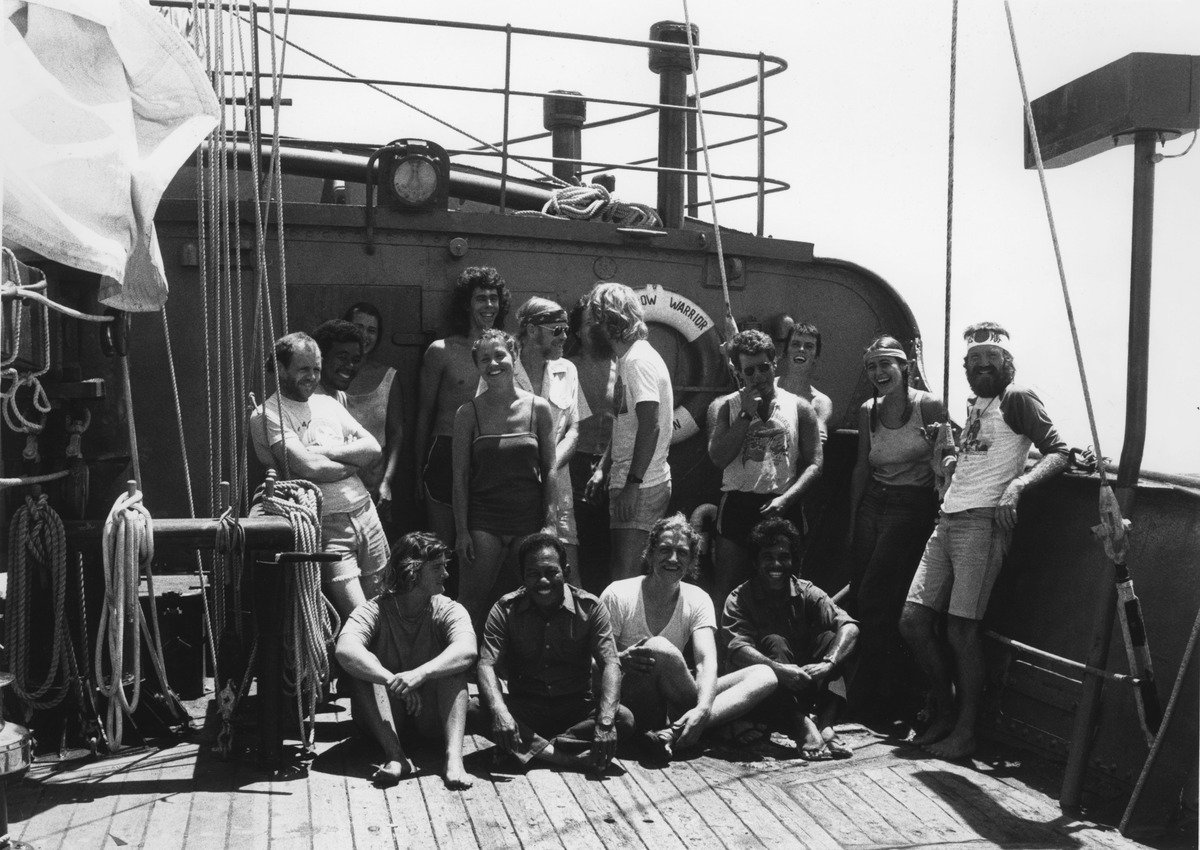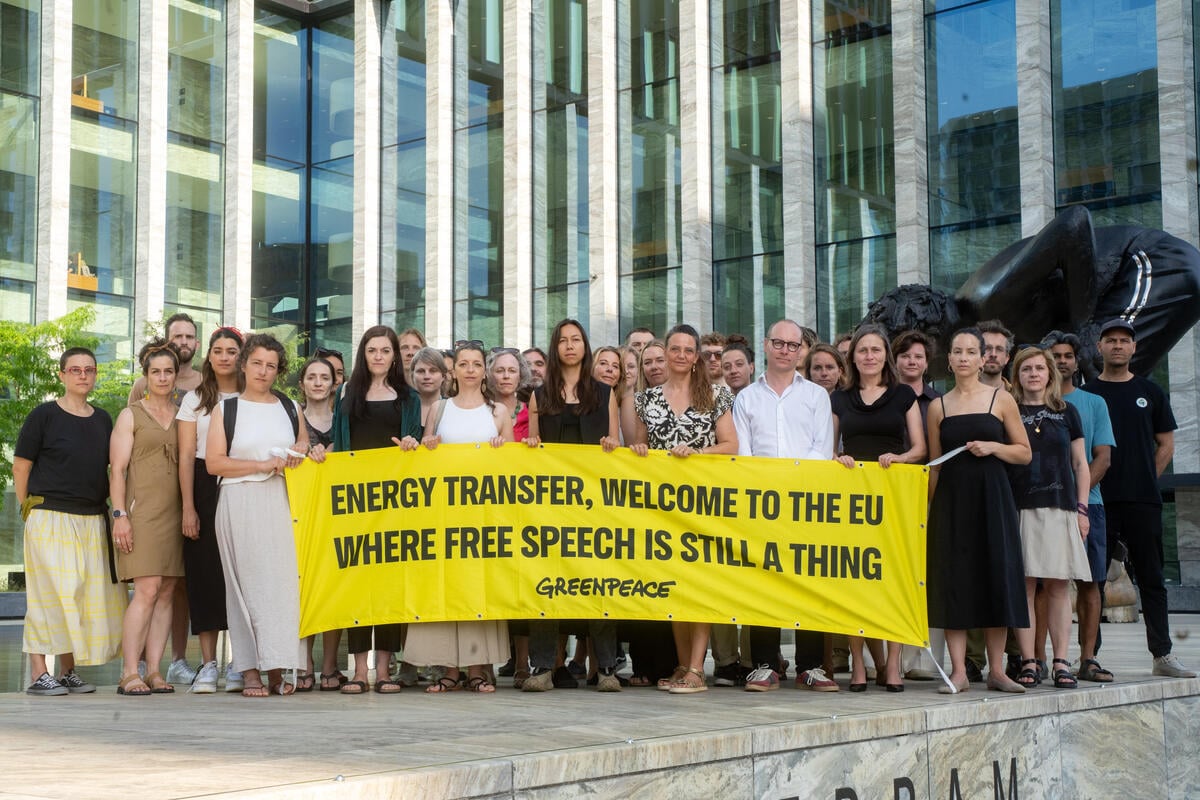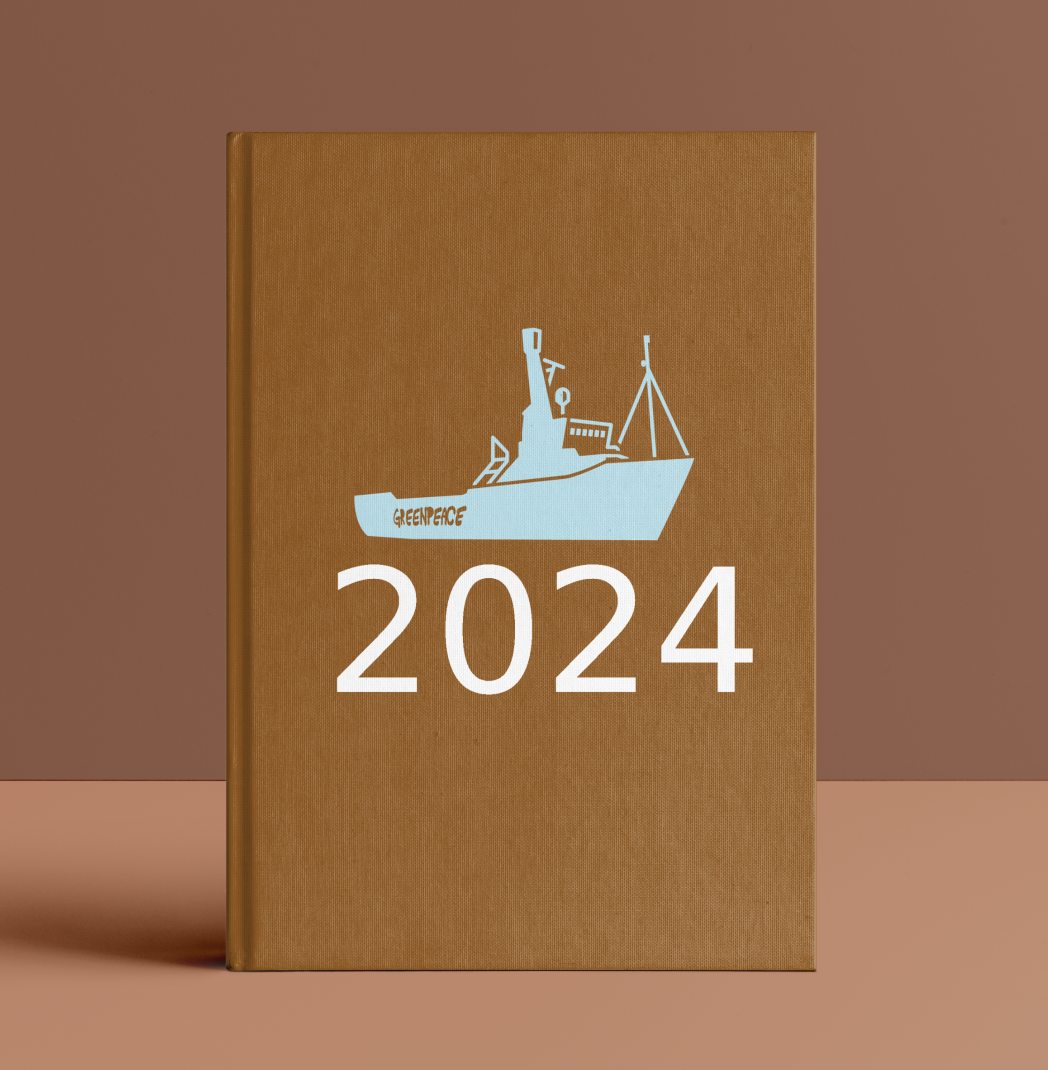Editor’s Note: This blog was initially published on 19 September 2024. It has been updated to include more information on the global battle against SLAPPs.
The fight to protect the environment often looks like a battle between David and Goliath. And the Goliaths of our world will stop at nothing to silence those who oppose their destructive projects. One of their favourite weapons? SLAPPs.
Strategic Lawsuits Against Public Participation (SLAPPs) are lawsuits that are filed with the intent to censor, intimidate, or silence critics by burdening them with the cost of a legal defence until they abandon their criticism or opposition. Major corporations have resorted to SLAPPs in an attempt to stifle dissent and discredit environmental advocates.
For the likes of corporate bullies like Energy Transfer and Shell, SLAPP lawsuits are about outspending opponents to intimidate them into silence. For Indigenous Peoples, NGOs like Greenpeace International, class action communities, fighting such SLAPP suits is about movement building in opposition to colonialist, domineering, rampant, and arrogant international companies and their destructive projects, whether in the energy sector, agribusiness, mining, chemicals, forestry, etc.
Despite facing several SLAPPs and colossal challenges, Greenpeace International’s legal team continues to fight back. Their tenacity and ingenuity have earned them recognition by the Financial Times as one of the most innovative and impactful in-house legal teams in 2024 for both their efforts on strategic litigation, placing communities at the centre to challenge the world’s biggest polluters, and combating the threats posed by SLAPPs. Here’s a closer look at some of the most high-profile SLAPP suits Greenpeace entities around the world have faced and are still facing, and what is being done to fight them.
1. Energy Transfer vs. vs. Greenpeace entities in the US and Greenpeace International
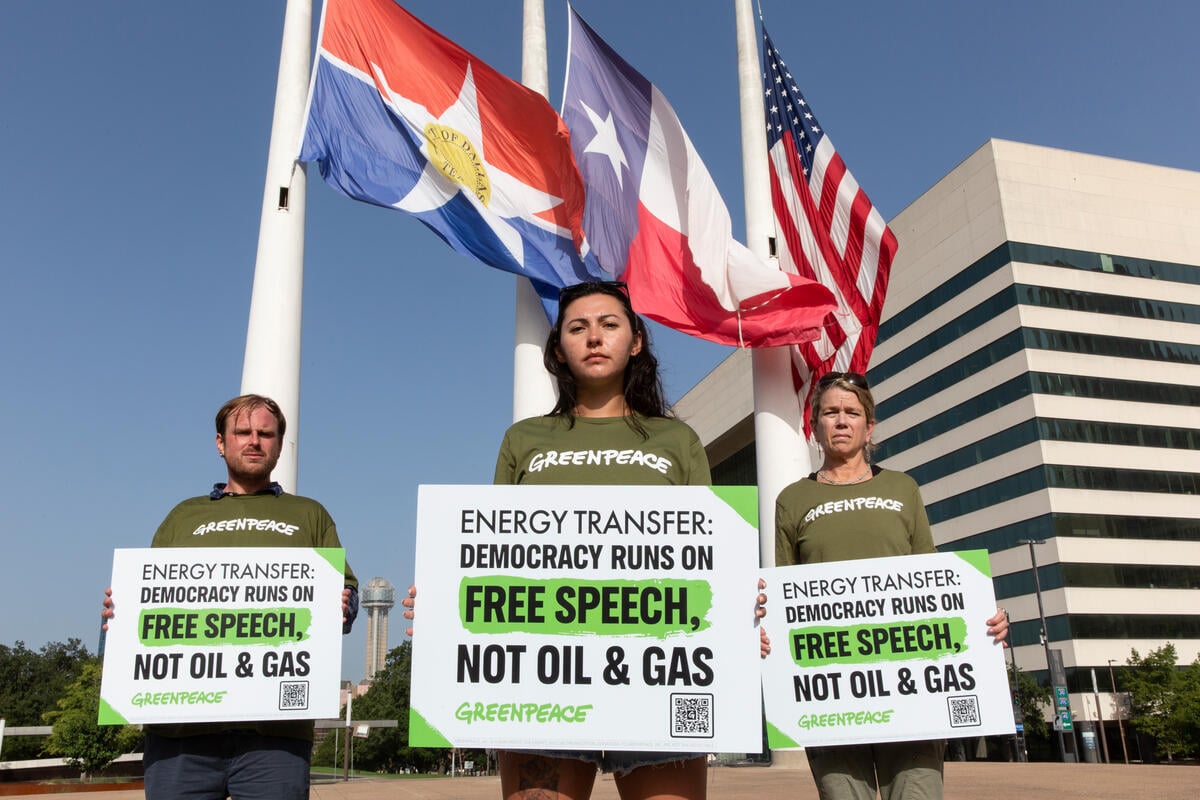
Greenpeace International and Greenpeace entities in the US are fighting a meritless US$ 300 million SLAPP lawsuit brought by Energy Transfer, the Big Oil company behind the Dakota Access Pipeline. The trial began on 24 February in Morton County courthouse in Mandan, North Dakota.
Energy Transfer’s US$ 300 million lawsuit against Greenpeace entities is one of the world’s most brazen examples of a Strategic Lawsuit Against Public Participation (SLAPP). ET’s lawsuit attempts to rewrite the history of the Indigenous-led protest at Standing Rock and could have a chilling impact on free speech in the US and beyond. Since 2017, GPI and Greenpeace organisations in the US have been defending against ET’s lawsuits, which ridiculously claim the protests were orchestrated by Greenpeace.
In the weeks before the jury trial began in North Dakota, Greenpeace International initiated the first test of the European Union’s anti-SLAPP Directive by filing a lawsuit in Dutch court against ET. With that lawsuit, GPI seeks to recover all damages and costs it has suffered as a result of ET’s back-to-back, meritless lawsuits demanding hundreds of millions of dollars against GPI and the Greenpeace entities in the US.
2. Shell vs. Greenpeace UK and Greenpeace International
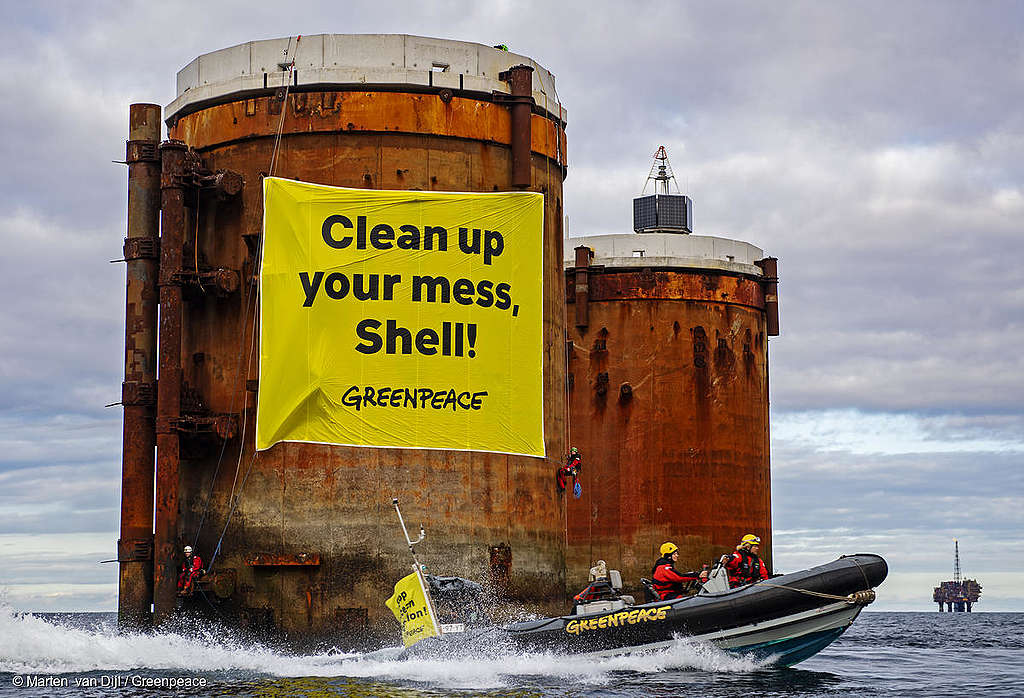
This case marks one of the most significant legal challenges Greenpeace entities have ever faced. Shell is the second-largest investor-owned oil company in the world (after ExxonMobil) and the 15th largest company in the world.
Shell’s lawsuit stems from a peaceful protest by Greenpeace International in 2023, where activists occupied a moving oil platform to draw attention to the climate harm caused by Shell’s operations. The peaceful protest urged the oil giant to halt its oil and gas drilling and to take responsibility for the environmental damage it has caused, which should include financial contributions to the international climate Loss and Damage fund.
Initially, Shell warned of a possible claim for over US$ 8 million in damages but later proposed a settlement of US$ 1.4 million along with a legal agreement that Greenpeace entities would be permanently barred from protesting on any of Shell’s infrastructure, whether in port or at sea, anywhere in the world. Greenpeace UK and Greenpeace International countered by offering to agree to the protest ban, but only if Shell commits to cutting its emissions by 45% by 2030, in line with a court order from the Netherlands.
Shell has since commenced formal legal proceedings in the UK Courts where it is claiming damages and exorbitant legal costs in a bid to silence Greenpeace UK and Greenpeace International. Greenpeace UK is asking for emergency donations to help fight this abusive claim.
3. Resolute Forest Products vs. Greenpeace USA and Greenpeace International
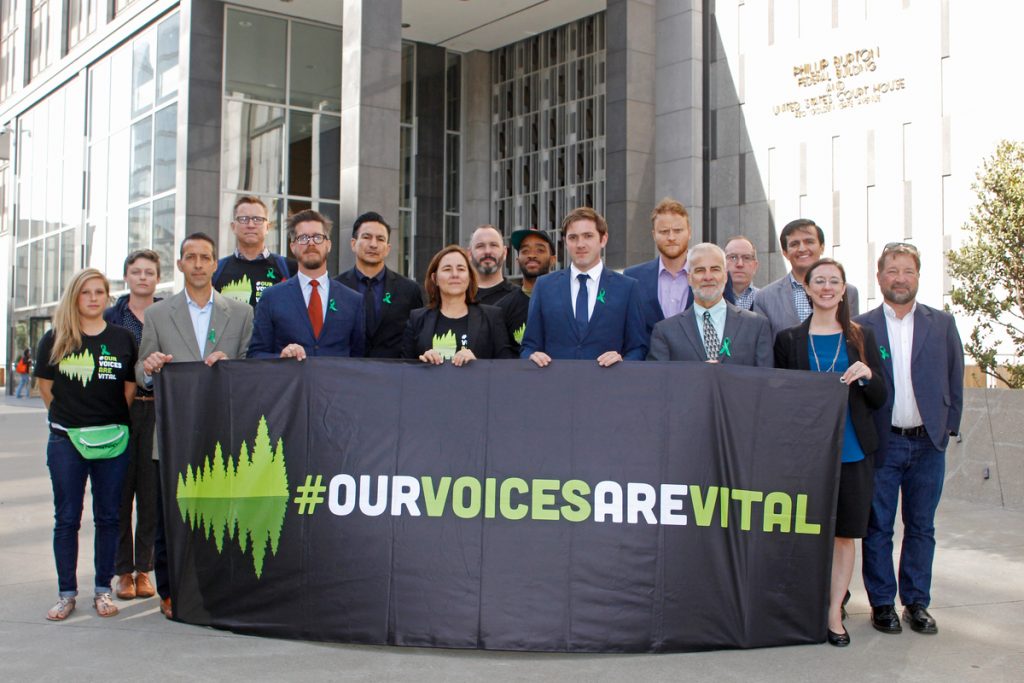
In April 2023, a US federal court dismissed a seven-year lawsuit brought by Resolute Forest Products against several Greenpeace staff members and entities, including Greenpeace International and Greenpeace USA. A major victory for freedom of speech and environmental protection.
The Canadian logging company had sued the Greenpeace defendants for CA$ 100 million in an attempt to silence and financially ruin them following criticism of its unsustainable forestry practices.
The Greenpeace network responded by focusing on the evidence of environmental degradation caused by Resolute’s operations and mobilised supporters in several regions of the world to denounce this unjust and disproportionate attack. The battle showcased the lengths to which corporations will go to protect their profit margins, even at the expense of crucial environmental protections.
4. TotalEnergies vs. Greenpeace France
TotalEnergies’ attempt at silencing Greenpeace France was ultimately dismissed by the Paris Judicial Court in March 2024. Nevertheless, this SLAPP was yet another part of the worrying trend of increasing attempts at judicial intimidation against civil society. TotalEnergies’ SLAPP against Greenpeace France followed the publication of the report “TotalEnergies Carbon Footprint: The Numbers Don’t Add Up“, in which Greenpeace France revealed an estimated calculation of the multinational’s greenhouse gas emissions. The court sided with Greenpeace France, deeming Total’s summons too vague to allow the NGO to effectively defend itself on the merits.
In the context of a climate emergency, the court’s decision to dismiss Total’s SLAPP confirmed that NGOs and civil society can – and will continue to – challenge the actions of major contributors to the climate crisis: this is a major setback for oil and gas giants.
5. ENI vs. Greenpeace Italy
Italian oil and gas company ENI filed a SLAPP targeting Greenpeace Italy and ReCommon in October 2024, yet another fossil fuel major to launch an ill-founded legal assault at a Greenpeace entity. ENI’s judicial attack was first announced in July 2023, in an effort to counter a still pending lawsuit – the Just Cause – filed two months earlier by Greenpeace Italy and ReCommon against the oil giant. The official filing of the case sets the oil company to meet environmental organisations in court in 2025.
Stronger together: an attack on one is an attack on all
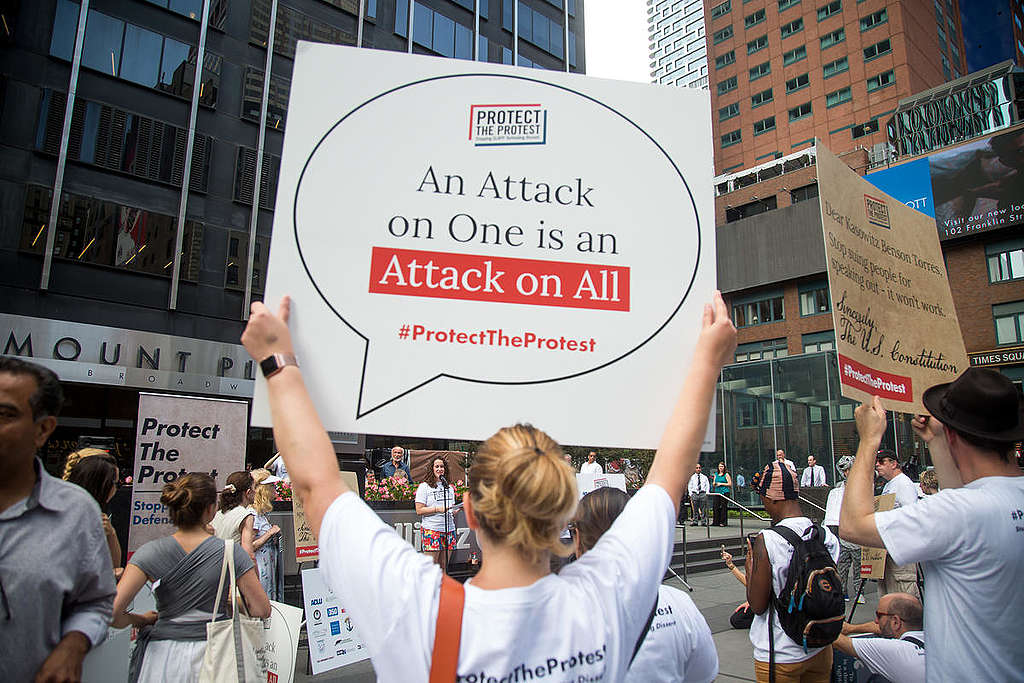
The Greenpeace network is obviously not alone in being the target of SLAPP suits, and it is fighting against these increasingly numerous intimidation tactics alongside many other activists and organisations.
EarthRights has identified 152 cases in the past 10 years where the fossil fuel industry has used SLAPPs and other judicial harassment tactics in attempts to silence or punish its critics in the United States.
A report by the Coalition Against SLAPPs in Europe (CASE) — which the Greenpeace International Legal Unit helped launch in 2020 — documented 820 SLAPP suits in Europe as of August 2023, with 161 lawsuits filed in 2022, a significant increase in the 135 cases filed in 2021.
Alongside the members of the CASE coalition, Greenpeace entities actively engage in advocacy efforts to strengthen legal protections for all environmental activists and organisations fighting against corporate malfeasance. The European Union’s new anti-SLAPP Directive, adopted by the EU in March 2024 following four years of campaigning is a major victory. It is already playing a role in Greenpeace International’s fight against Energy Transfer.
When the movement fights back, it wins
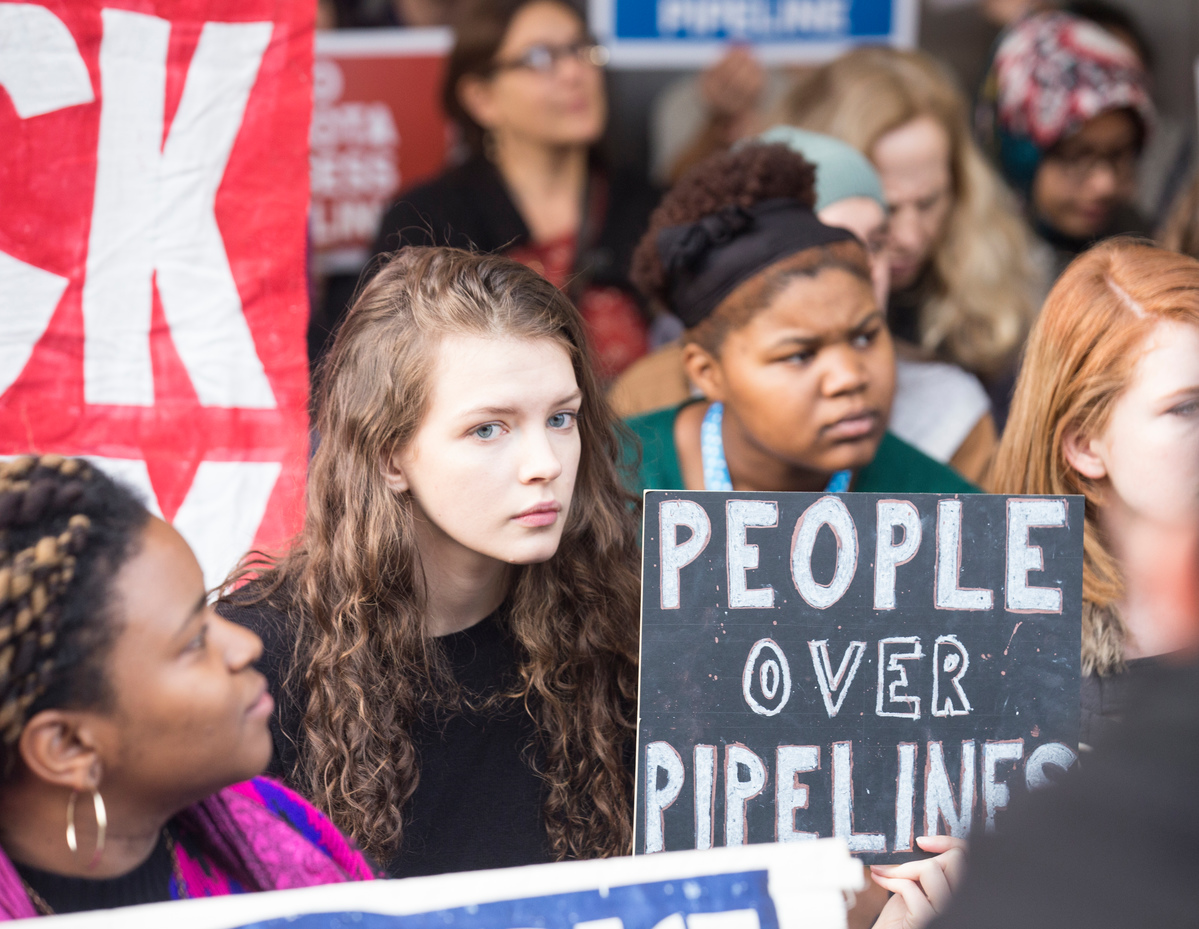
The climate movement is not just defending itself: it is also dealing decisive blows in the trenches of law and justice.
In 2023, several landmark legal victories marked crucial steps toward climate justice and protecting people from the climate crisis. In April, the European Court of Human Rights ruled in favour of Swiss Senior Women for Climate Protection (KlimaSeniorinnen), recognising Switzerland’s failure to sufficiently reduce greenhouse gas emissions as a violation of human rights. In May, the International Tribunal for the Law of the Sea (ITLOS) classified greenhouse gas emissions as marine pollution, strengthening international environmental law and safeguarding the oceans. Additionally, the Inter-American Court of Human Rights held historic hearings, amplifying the stories of impacted Indigenous Peoples and local communities in their demand for climate justice. These actions represent significant progress in holding governments accountable and protecting vulnerably situated populations from climate-related harm.
These lawsuits represent more than just legal battles; they are emblematic of the broader struggle between corporate interests, climate inaction and the global environmental and human rights movement. Each victory against a SLAPP lawsuit, each new step forward in the recognition of the growing impact of the climate crisis and environmental degradation on our lives, sets a precedent for other activists and organisations fighting for a liveable planet and a better future.
To corporations trying to shoot down civil society, NGOs, individuals: you’d best not miss. Because we’re coming back at you, harder than ever.

